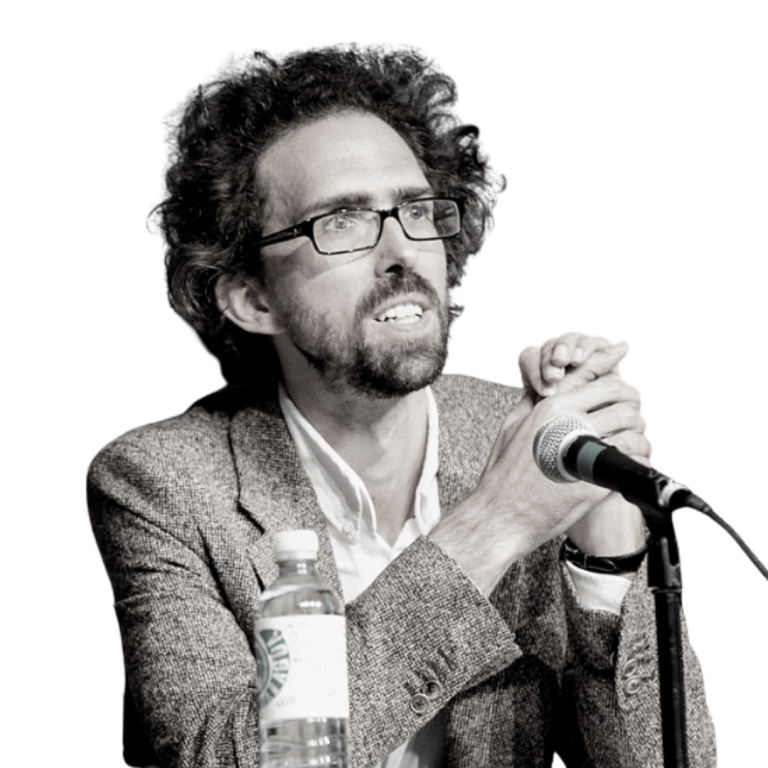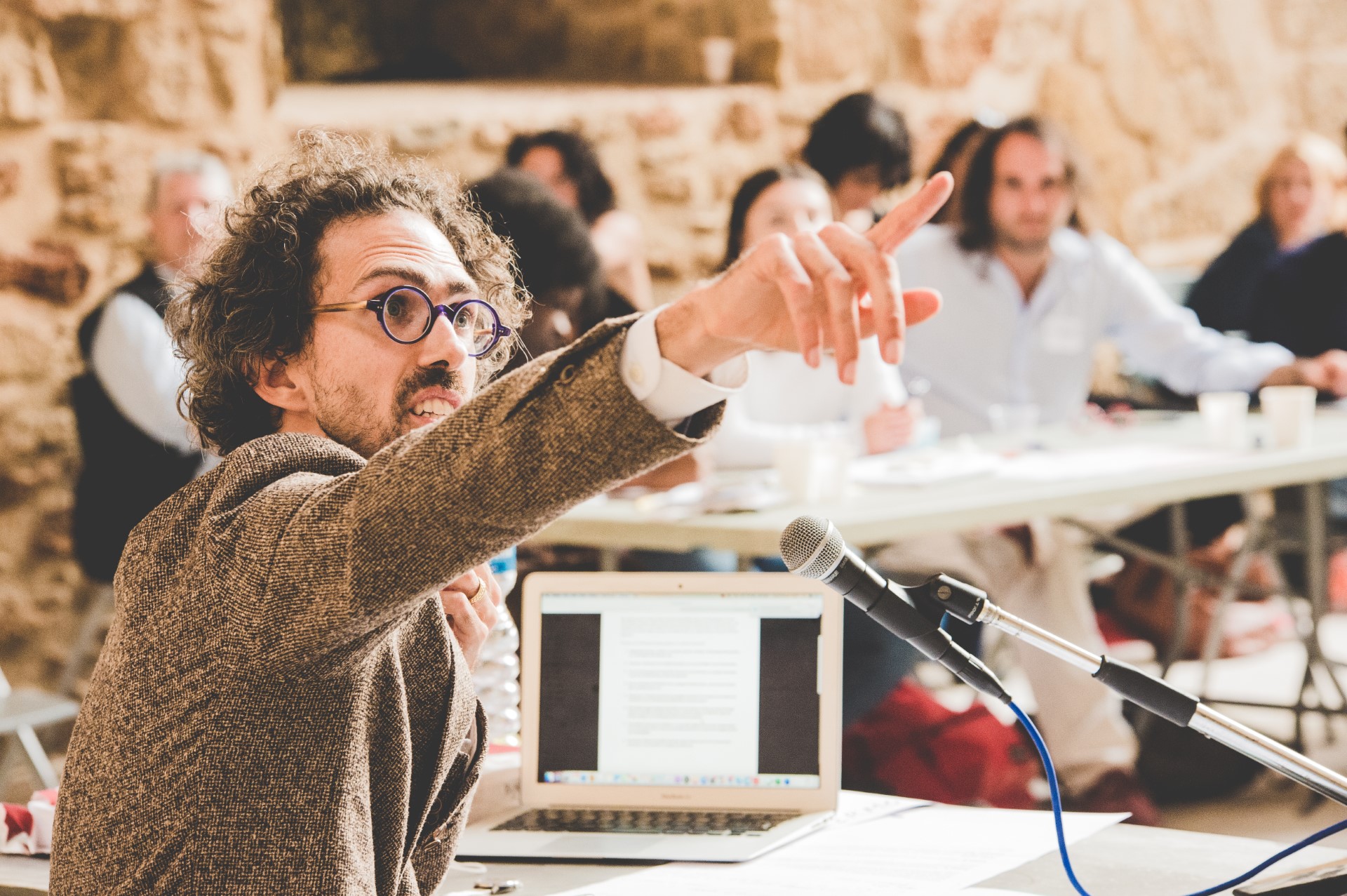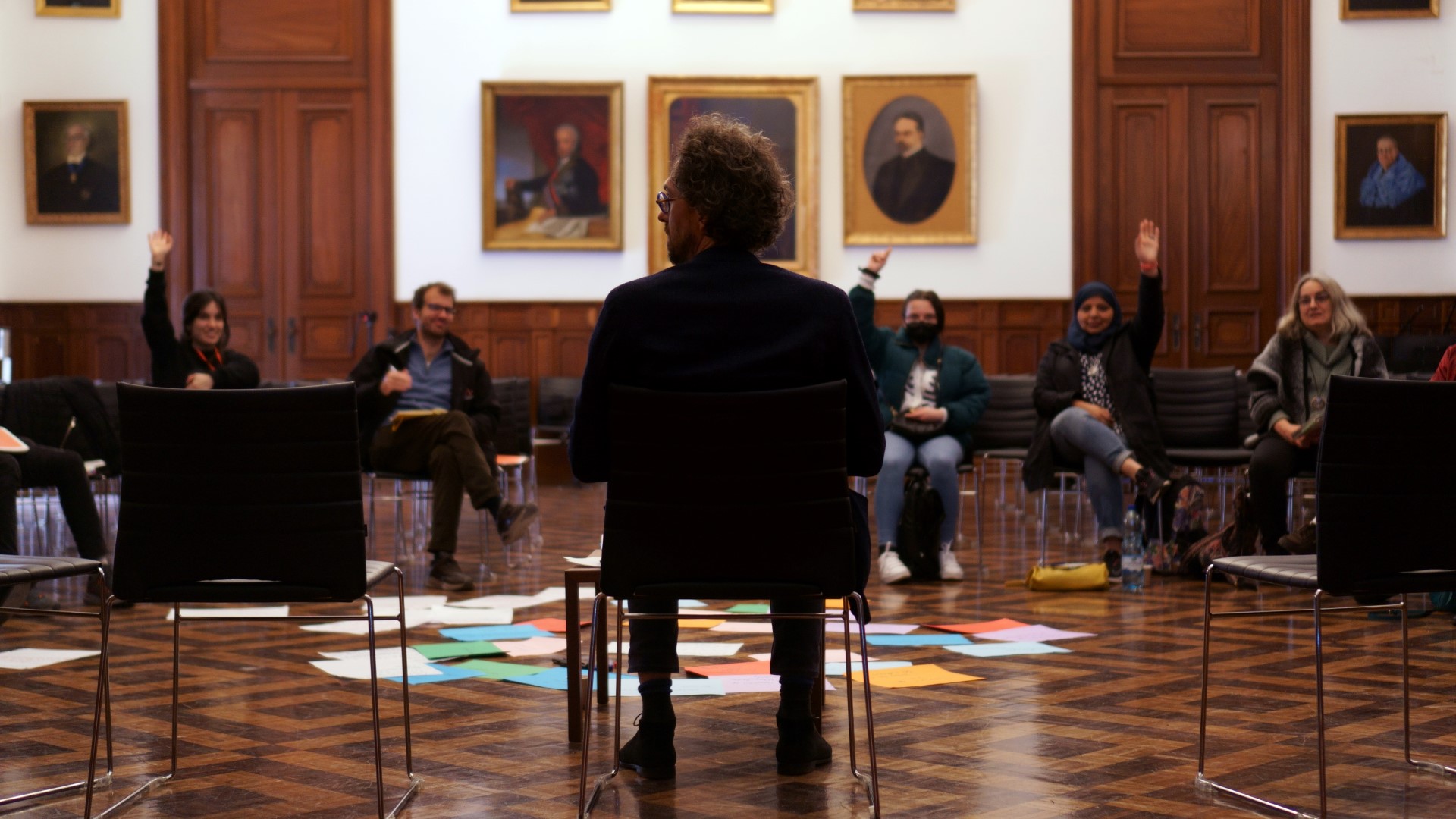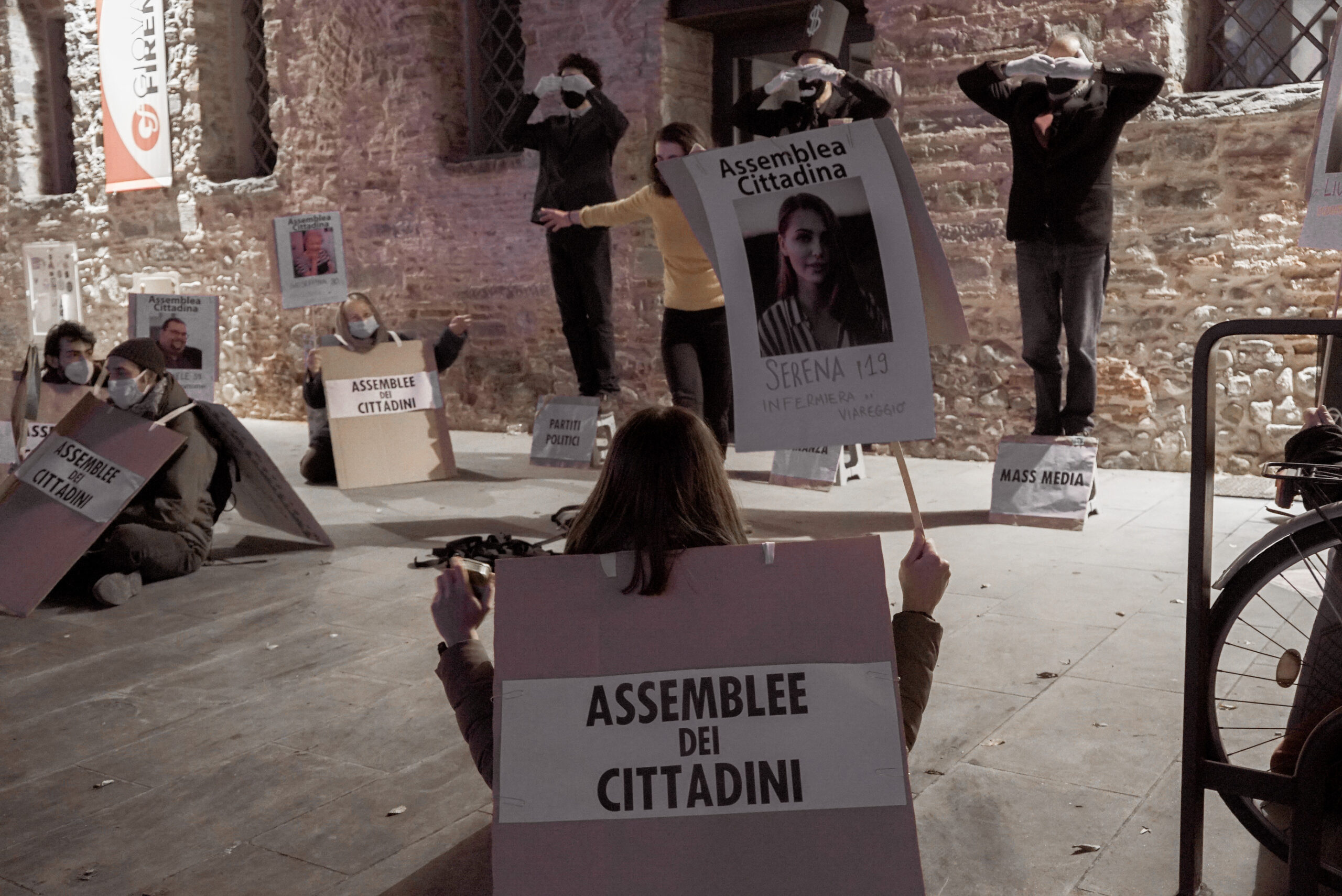Niccolò Milanese the director of European Alternatives talks to Ana-Maria Carabelea from Ars Electronica about the engagement of youth and other missing voices in the discussions on political and societal transformation.
How would you describe European Alternatives’ mission?
European Alternatives promotes democracy, equality, and culture beyond the nation-state. It does that through 5 streams of activities: IMAGINE, TRAIN, ASSEMBLE, ACT, and LEARN. We try to change the political communities we consider ourselves to be part of through a holistic approach to changing our political consciousness and sense of collectivity. This kind of deep change we’re promoting often starts from questions like who or what is part of communities, who counts, and who doesn’t count.
Can you talk us through the five streams of activities you mentioned? Why those streams, what role do each of them play?
The streams of activities are ways of thinking about any concrete activity we do, which is likely to be at the confluence of several streams. The IMAGINE stream is concerned with the imaginative dimension of society and the future, the TRAIN stream with training to be able to do something, the ASSEMBLE stream bringing people together and being aware of the ways we convene, the ACT stream is about taking action, and the LEARN stream about learning from these experiences and bringing that learning into imagination. So, the five streams can also be represented as a cycle – a kind of extended ‘action learning circle’. We believe that by repeating this cycle across territory and across time, we create a holistic change. Like a cyclone!
How does the Critical ChangeLab support your mission?
The Critical ChangeLabs aim to provide an educational model for young people in school and outside of school that reconceptualises the context and learning environment by, again, asking questions like who’s in, who counts, to imagine a different kind of future and think about how to contribute to that in practical terms. It deeply relates to our mission of reimagining politics and communities but takes it into schools and other places where young people meet and learn. I believe, that if you’re going to start anywhere in trying to bring about political and social change, that place is education. One of the reasons we got involved in the project is that through our activities, we often hear from young people – in Europe and beyond – that they are politically aware and extremely concerned, even anxious, but that they feel disempowered, or lack orientation, and a sense of agency. For this reason, trying to build an educational model or a set of tools that can help them develop a sense of agency seems crucial.
We often hear from young people – in Europe and beyond – that they are politically aware and extremely concerned, even anxious, but that they feel disempowered, or lack orientation, and a sense of agency.
What previous projects or experiences will inform how you approach the Critical ChangeLab?
Since the beginning of the COVID-19 pandemic, we’ve been organising what we call assemblies of solidarity across Europe. Sometimes they are local, sometimes they are transnational assemblies of solidarity, where we might bring together hundreds of people from across the continent. Though this wasn’t originally our intention, the question of how more-than-human voices could be heard, rapidly became an important one in these assemblies. It was interesting to see how almost any topic we started with – whether it was health, workers’ rights, or migration – had an ecological or planetary dimension, and that this question of the more-than-human voice became central each time. We came up with different theatrical methodologies to give voice to the trees, the ocean, or the planet.
Another recent project called Artsformation – asks how digital arts can help us become more aware, at least, if not give voice to more-than-human or absent beings, whether future generations or people very far away. Lastly, the various projects we’ve done with migrant communities always brought up a reflection about those who are not yet here or the empty seats at the table and the fact that any assembly or gathering of people always leaves out somebody or something. This creates an awareness of our limitations which could be brought to the classroom as well and will inform the way we approach the Critical ChangeLabs.
Were there any ways of including those missing that surfaced in those activities?
Firstly, the symbolism of having empty chairs or a circle that is not complete but almost complete is an important way of getting a group to think about people or other beings they have come across in their daily lives and that are absent. We don’t aim to represent them as if we knew what they would say or think, but rather we prompt people to think about the way the meeting then made them feel and try to think in relational terms rather than on behalf of somebody else. We’ve often done this by thinking of all the people who made it possible for us to be there together – whether it was the cleaners, or the people providing the electricity. This exercise allows us to imagine these concentric circles around any meeting and think about different forms of inequality within those circles, about who has a voice and who doesn’t.
What do you most look forward to in the Critical ChangeLab?
The change part of it. The best outcome that can emerge from this Critical ChangeLabs is that the people involved feel empowered and feel that they can become active and can continue to be active, even if the change is not immediately perceptible. We hope for a sense that the experience will change the direction of people’s lives rather than what they do on any given day. That’s what will be the most important outcome of the project and the most inspiring as well.
The symbolism of having empty chairs or a circle that is not complete but almost complete is an important way of getting a group to think about people or other beings they have come across in their daily lives and that are absent.
Do you already have a particular group in mind that you’re planning to engage in the Critical ChangeLabs?
We have too many groups in mind, so we need to narrow it down. So far, we’ve been thinking of people with eco-anxiety, particularly, young people who identify as female because studies have shown that this group tends to feel that anxiety strongest. Other groups we’ve considered are refugees and children of refugees or early school leavers in second-chance schools in Paris. The last group would be a very interesting one because they already had a problematic relationship with formal education and nonetheless, they’ve come to an institution like second-chance school. Presumably, it will be possible to have a critical conversation with them about the schooling system they were previously involved in, how they felt about it, how they related to it, and the social constraints that led them back into education. That might open the critical space to have a conversation about what’s a good model of education and prompt questions about the right to the city, the right to education and political participation, and the relationship with the state and its representatives, like the police.
Join our newsletter to continue to be updated on what we’re up to at #CriticalChangeLab. We’ll always keep it interesting, and only send you updates for as long as you want us to.

Niccolò is a director of European Alternatives. He is currently a Europe’s Future Fellow at IWM, Vienna. Niccolò was educated in Cambridge, Siena, and Paris where he was an Entente Cordiale Scholar. Aside from European Alternatives he has been involved in the founding of numerous political and cultural organizations, magazines, and initiatives on several sides of the Mediterranean.

Since joining Ars Electronica in 2021, Ana-Maria Carabelea has been developing content and communication strategies for various European projects. In the past, she conceptualised and curated conference programmes and exhibitions within the cultural and creative industries, including -ing Creatives, Dubai’s first independent creative festival. She holds an MA in European Literature from Humboldt University Berlin, an MA in Brands, Communication, and Culture from Goldsmiths University of London, and is currently developing her PhD proposal for Goldsmiths University of London.



